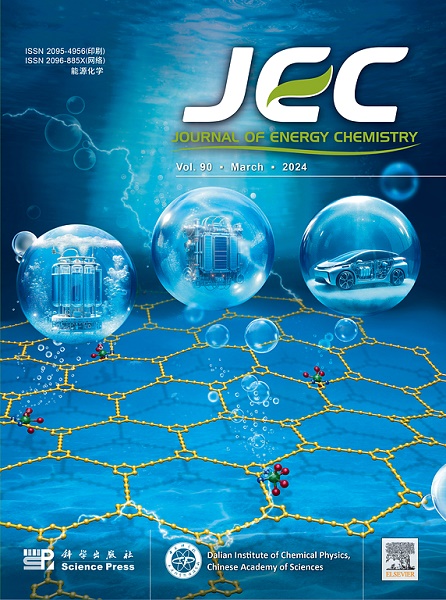Transforming waste to value: Enhancing battery lifetime prediction using incomplete data samples
IF 13.1
1区 化学
Q1 Energy
引用次数: 0
Abstract
The widespread usage of rechargeable batteries in portable devices, electric vehicles, and energy storage systems has underscored the importance for accurately predicting their lifetimes. However, data scarcity often limits the accuracy of prediction models, which is escalated by the incompletion of data induced by the issues such as sensor failures. To address these challenges, we propose a novel approach to accommodate data insufficiency through achieving external information from incomplete data samples, which are usually discarded in existing studies. In order to fully unleash the prediction power of incomplete data, we have investigated the Multiple Imputation by Chained Equations (MICE) method that diversifies the training data through exploring the potential data patterns. The experimental results demonstrate that the proposed method significantly outperforms the baselines in the most considered scenarios while reducing the prediction root mean square error (RMSE) by up to 18.9%. Furthermore, we have also observed that the penetration of incomplete data benefits the explainability of the prediction model through facilitating the feature selection.

将废物转化为价值:利用不完整的数据样本增强电池寿命预测
可充电电池在便携式设备、电动汽车和储能系统中的广泛使用,凸显了准确预测其使用寿命的重要性。然而,数据的稀缺性往往限制了预测模型的准确性,而传感器故障等问题导致的数据不完整又加剧了预测模型的准确性。为了解决这些挑战,我们提出了一种新的方法,通过从现有研究中通常丢弃的不完整数据样本中获取外部信息来适应数据不足。为了充分发挥不完整数据的预测能力,我们研究了通过探索潜在的数据模式,使训练数据多样化的Multiple Imputation by Chained Equations (MICE)方法。实验结果表明,在大多数考虑的场景下,该方法显著优于基线,同时将预测均方根误差(RMSE)降低了18.9%。此外,我们还观察到,不完整数据的渗透通过促进特征选择,有利于预测模型的可解释性。
本文章由计算机程序翻译,如有差异,请以英文原文为准。
求助全文
约1分钟内获得全文
求助全文
来源期刊

Journal of Energy Chemistry
CHEMISTRY, APPLIED-CHEMISTRY, PHYSICAL
CiteScore
19.10
自引率
8.40%
发文量
3631
审稿时长
15 days
期刊介绍:
The Journal of Energy Chemistry, the official publication of Science Press and the Dalian Institute of Chemical Physics, Chinese Academy of Sciences, serves as a platform for reporting creative research and innovative applications in energy chemistry. It mainly reports on creative researches and innovative applications of chemical conversions of fossil energy, carbon dioxide, electrochemical energy and hydrogen energy, as well as the conversions of biomass and solar energy related with chemical issues to promote academic exchanges in the field of energy chemistry and to accelerate the exploration, research and development of energy science and technologies.
This journal focuses on original research papers covering various topics within energy chemistry worldwide, including:
Optimized utilization of fossil energy
Hydrogen energy
Conversion and storage of electrochemical energy
Capture, storage, and chemical conversion of carbon dioxide
Materials and nanotechnologies for energy conversion and storage
Chemistry in biomass conversion
Chemistry in the utilization of solar energy
 求助内容:
求助内容: 应助结果提醒方式:
应助结果提醒方式:


